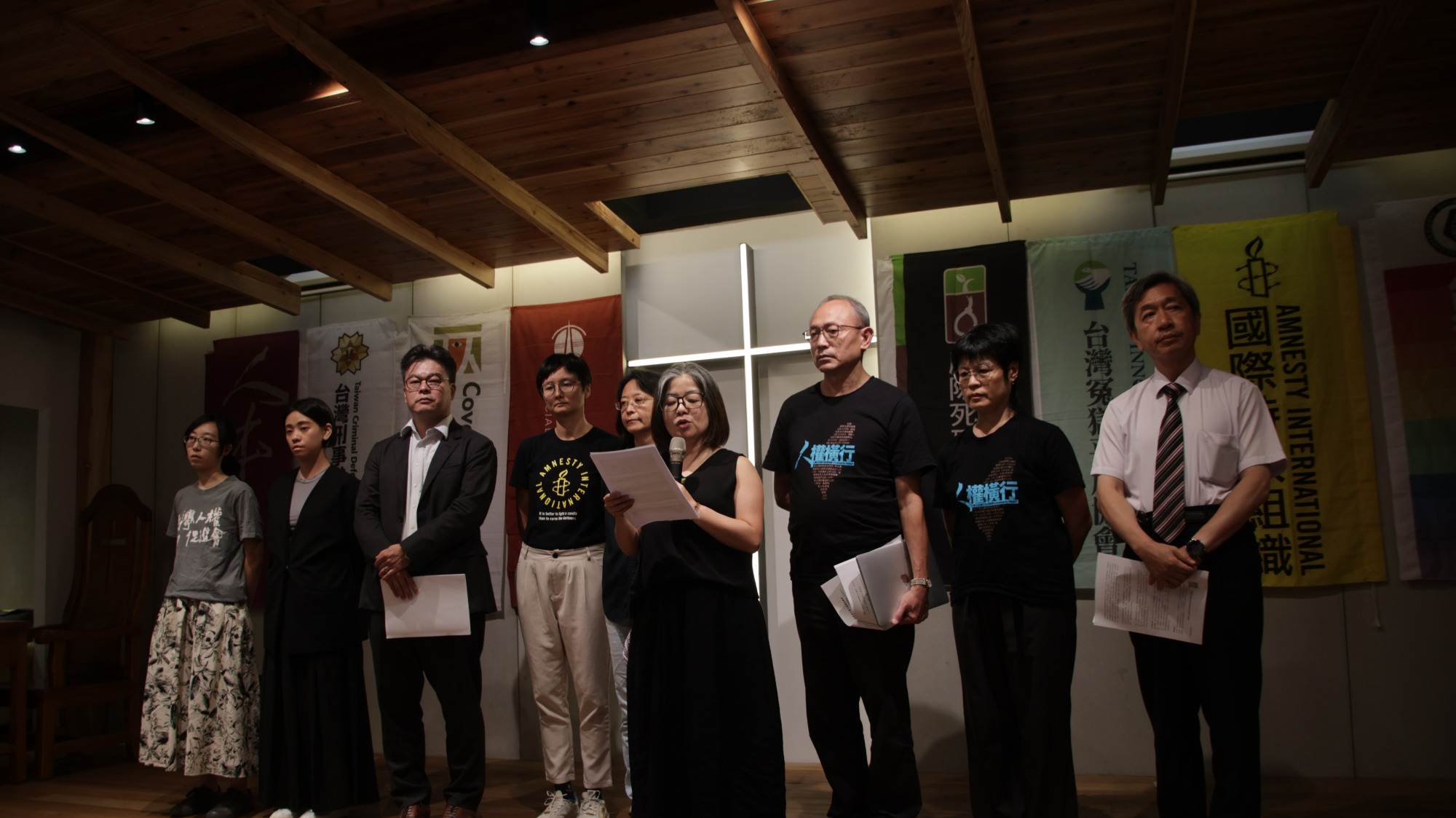公眾對話
「討論並非行動的絆腳石,而是採取任何聰明行動不可或缺的前置作業」~西元前五世紀,伯里克利(Pericles)
When Will There be Light at the End of Darkness? Response to Taiwan Constitutional Court Judgement 113-Hsien-Pan-No.8 (2024)
When Will There be Light at the End of Darkness?
Taiwan Alliance to End the Death Penalty
September 20th, 2024
If the Constitutional Court had upheld its role as a defender of human rights, and proclaimed that the death penalty is unconstitutional, it could have led the society beyond the instinctive reactions of revenge and intimidation, broken the cycle of hatred, and augmented possible means of healing. This hope was regrettably proven false today.
The Taiwan Constitutional Court Judgement 113-Hsien-Pan-No.8 has rendered it evident that the institution of the death penalty is not as rigorous as many might have imagined. The Taiwan Alliance to End the Death Penalty (TAEDP) has long pointed out that the current system has many flaws: there is a lack of full mandatory defense, until 2012 there was a lack of oral argument at the third instance, the verdicts have not been made unanimously, and defendants who suffered from mental disorders at the time they committed the crime, during trial, or at the time of punishment were not excluded from the application of the death penalty. This Judgement affirms that the above circumstances violated defendants' right to litigation defense and due process of law.
Most of the 37 conviction cases involved crimes that were not premeditated or committed with direct intent, or crimes that were not considered to be among "the most serious crimes." Judgement 113-Hsien-Pan-No.8 points out that the death penalty cannot be imposed in the case of crimes committed without direct intent. Even if it is committed with direct intent, it is still necessary to further consider whether the act meets the provisions of General Comment No. 36 of the International Covenant on Civil and Political Rights (ICCPR) on "the most serious crimes". This is a restriction on the substantive conditions of death sentences imposed by the Judgment. However, the 37 convicted death penalty cases all involve the above issues. The Ministry of Justice should not carry out any executions, and the Prosecutor General should file extraordinary appeals for the 37 death row prisoners with respect to those parts of their cases that are inconsistent with the Constitution.
When will Taiwan finally abolish the death penalty? The road ahead will be even more difficult. TAEDP emphasizes, however, that the death penalty continues to be in violation of the international human rights covenants that Taiwan has signed. The Taiwan Constitutional Court Judgement 113-Hsien-Pan-No.8 should not be allowed to be an obstacle preventing the government from fulfilling its commitment to these covenants.
As long as the death penalty exists, the authorities will depend on a sense of complacency, using the false premise that "Taiwan is not ready for abolition" as an excuse for their perennial inaction, attempting to perfunctorily use death penalty verdicts or executions to respond to the pain of victims and societal demands for public safety, while failing to invest in developing and implementing effective policies that can substantively protect society and ensure people's safety, thereby hindering progress and reform.
We urge the government and civil society to continue engaging in social communication. The next step for TAEDP will be made on October 5th and 6th, with the convening of the international conference titled "Let There Be Light at the End of Darkness — The Next Step for Taiwan After the Abolition of the Death Penalty”. While the ruling remained unknown when we were in the preparation process, we hold that Taiwan cannot, and will not stop moving forward. The institution of death penalty is never static in a democratic country that is being constantly shaped by existing difficulties and new challenges to overcome. The death penalty should not be a default option in nations such as Taiwan, which has gone through authoritarianism and democratization. Our imagination and realization of prison reform, social rehabilitation, social security, and human rights protection should not be bound by the institution of the death penalty.
Looking back, the abolition movement victoriously exonerated those who were wrongfully sentenced to death, including the Hsichih Trio(the Su Case 蘇建和), Hsu Tzu-chiang(徐自強), Zheng Hsing-tze(鄭性澤), and Hsieh Chih-hung(謝志宏), but we failed to save the lives of Chiang Kuo-ching(江國慶), Lu Zheng(盧正), and the Du brothers(杜氏兄弟). Currently, among the 37 death row prisoners, Wang Hsin-fu(王信福) and Chiou Ho-shun(邱和順) still remain to be exonerated. The lawyers and civil society organizations will continue to strive for justice, and we hope that the judicial system will respond courageously in preventing the creation of more victims of the death penalty.
Finally, we would like to extend our sincerest gratitude to the attorneys, NGOs and scholars both domestic and international who have assisted with our work in regard to this ruling. Moving forward, we will continue to support the 37 death penalty prisoners. Over the last 20 years since the founding of the Taiwan Alliance to End the Death Penalty, we have come to deeply understand that whether one opposes or supports the death penalty, everyone shares the same hope for a safe and prosperous Taiwan. The difference lies in whether we believe that the death penalty is conducive to this goal or not. We will continue our efforts, and we hope that one day, the death penalty will no longer exist in Taiwan or on this planet.



